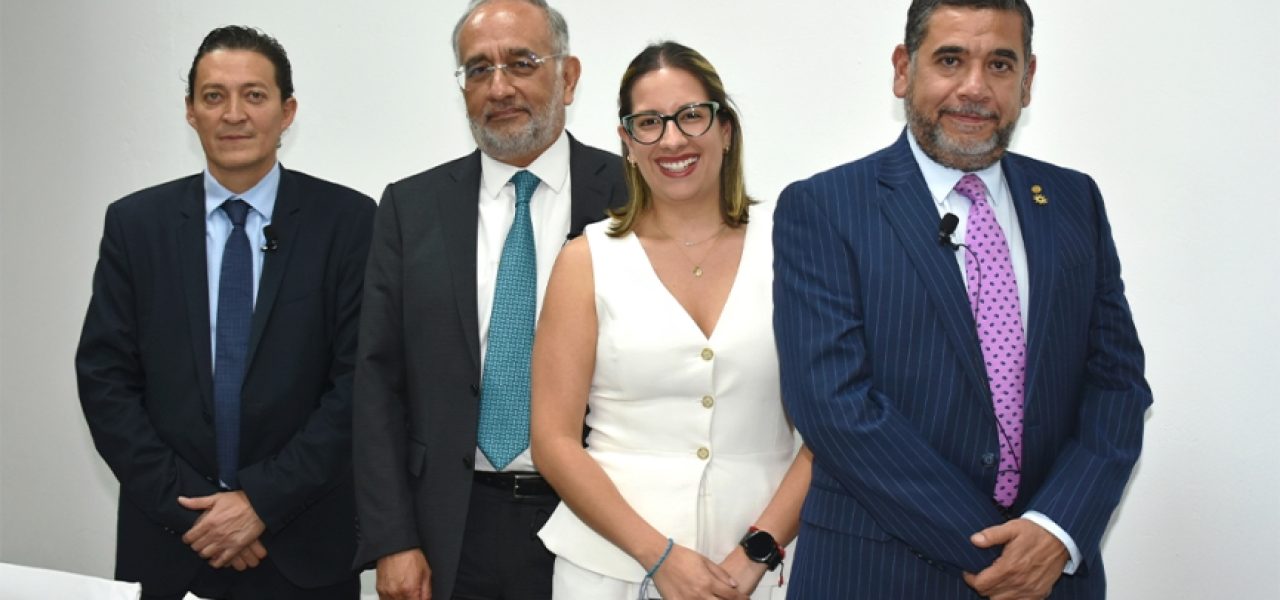The payment of the PTU [Employee Participation in Company Profits] must be made on May 30 at the latest in the case of companies (legal entities) and on June 29 for individual employers (natural persons).
The Association, in response to the latest changes in the regulations, gave the course on Salaries and Benefits: Tax, Labor and Social Security Aspects, with the participation of specialists in social security, tax research, local contributions and experts in labor law. This event took place from May 6 to 8, 2025.
In the first panel, specialists Óscar De la Vega Gómez and Regina De La Vega Castillo analyzed the current outlook after the Reform of 2021 in which subcontracting personnel was prohibited and new rules for contracting specialized services were established.
In this regard, they discussed the obligations and critical points for registration in the REPSE [Registry of Providers of Specialized Services or Specialized Works]; they recalled that companies must constantly update the information in the registry, be up-to-date in their tax obligations, have their corporate purpose perfectly defined and their activities registered before the Tax Administration Service (SAT) , among other obligations.
Likewise, De La Vega Castillo highlighted the recent changes in inspection criteria by the labor authorities. “The objective of these inspections is to verify compliance with the new regulations on specialized services. Inspections can be initial, periodic, compulsory or extraordinary , depending on the specific situation of each company”, she informed.
They also discussed several initiatives that could be implemented in 2025, such as the reduction of weekly working hours from 48 to 40, the increase to the year-end-bonus from 15 to 30 days, the extension of paternity leave, the option of teleworking, among others.
For his part César Suárez Domínguez discussed the considerations for the payment of Employee Participation in Company Profits (PTU). In his presentation, he mentioned that even though the Federal Labor Law (LFT) does not directly establish that companies have the obligation to distribute PTU, all economic units that produce or distribute goods or services are considered, as well as all natural persons or legal entities with workers at their service, whether or not they are ISR [Income Tax] contributors.
In this regard, he explained who is exempt from paying PTU, among them, newly created companies, the extractive industry and private assistance institutions. Meanwhile, Sergio Alejandro Ríos Alonso, from the Local Contributions commission, shared the points of interest in regard to Payroll Tax (ISN) in Mexico City and the State of Mexico.
On the second day of conferences, and continuing with the topic of payroll deductions, Humberto Cruz Hernández and José Pablo Casales García said that, as of 2023, the total contribution to workers’ individual accounts will be of 6.5% plus social security contributions to 15% including the social security contribution.
He added that, with the merit-based proposal, the contribution made by the workers remains unchanged. “The Employer’s contribution rises from 5.15% to 13.87%, and the State’s contribution changes its composition to benefit only lower-income workers, without increasing its total amount”, he specified.
He explained that the employer’s contribution will increase gradually from 2023 to 2030, in accordance with the table that is included in Transitory Article Two, and that the adjustment to the State’s Contribution also entered into force in 2023.
An important topic was that of the reform to the Infonavit [National Workers’ Housing Fund Institute] law, where Miguel Ángel Silva Pedroza informed that the objective is to establish the bases for the development of the Infonavit as a housing developer for the benefit of workers, to regulate the concept of social renting, broadening the provided benefit and strengthening the Infonavit and its operation.
Continuing with the presentations, experts said the payroll CFDI [Digital Tax Receipt over the Internet] is the main tool for digital auditing. “These receipts are cross-referenced with annual, provisional and accounting statements; additionally, they are also the basis for exhortations, electronic audits and control of deductible expenses”, Casales García explained.
And on the last day of activities, Pablo Limón Mestre informed that an expatriate worker is a person whose interests reside in his country of origin, but is transferred by a multinational company, either temporarily or permanently, to provide his services in another country,
On this topic, Limón Mestre, an accountant, specified that the notice of change of tax residency must be submitted, when natural persons and legal entities cease to be residents of Mexico, no less than thirty days prior to the date on which the change of tax residency takes place and no more than six months in advance.
Jorge Manzanilla Cañizares and Manuel García Villalobos concluded the presentations, discussing the notices that companies must submit to the RFC [Federal Taxpayer’s Registry] in their capacity of employers and the tax aspects relating to the social security benefits, respectively.



